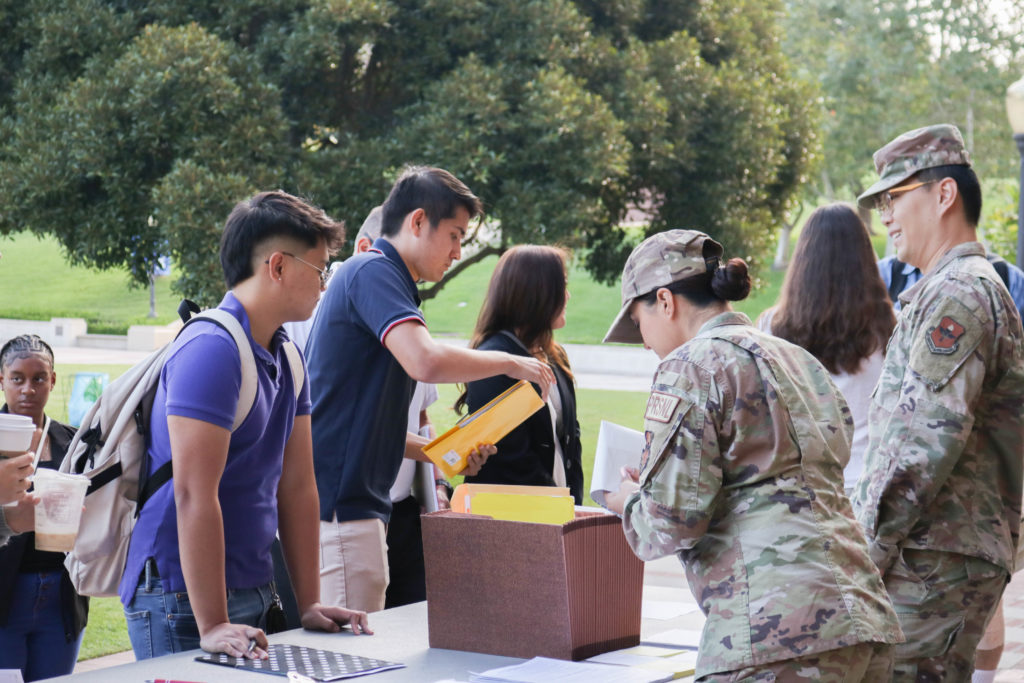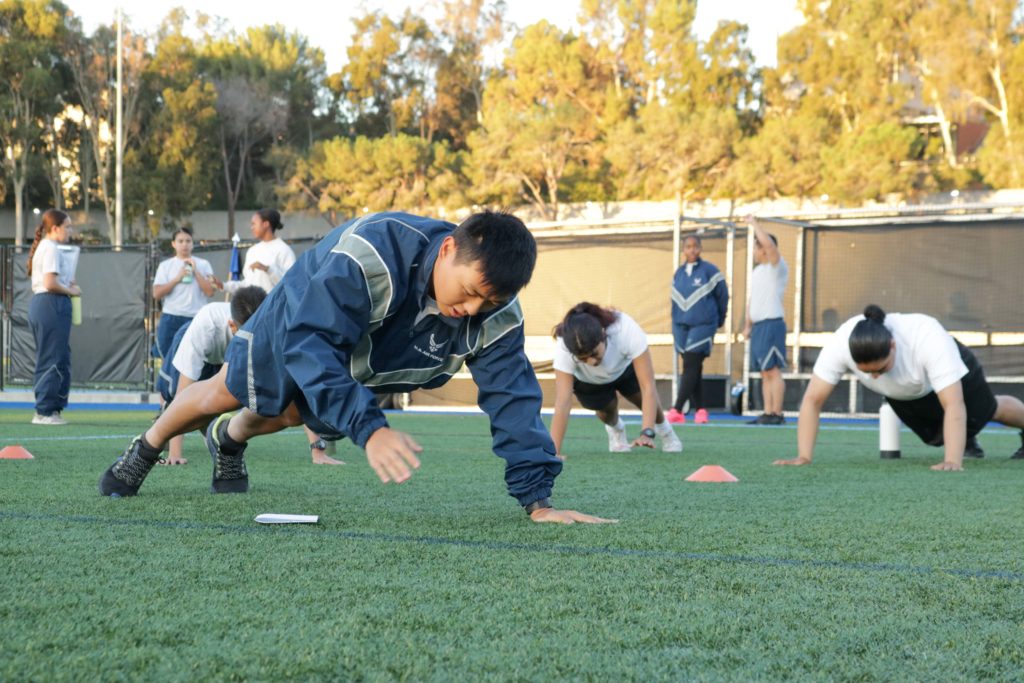UCLA ROTC programs provide support for Bruins pursuing military careers
Pictured are cadets participating in training exercises as part of the Air Force ROTC. Cadets in the Air Force ROTC learn about aerospace science and participate in physical training activities. (Courtesy of Dennis Melka)
By Jessica Son
Jan. 9, 2024 7:59 p.m.
This post was updated Jan. 9 at 9:41 p.m.
Second-year art student Youngjae Choi always knew he wanted to fly.
Coming from a family of fighter pilots in South Korea, Choi faced barriers in joining the United States Air Force Academy. However, Choi said he has learned more about life in the military by joining the UCLA Reserve Officers’ Training Corps.
The UCLA ROTC programs are dedicated to helping students grow and experience a military lifestyle, with benefits and resources to boost career aspirations, according to the UCLA ROTC website. Cadets in the Air Force branch of ROTC can learn about aerospace studies, participate in physical training and practice military customs through the program.
Gavin Teague, a fourth-year aerospace engineering student, said AFROTC has been a character-building opportunity. As deputy commander of the mission support group, he helps fundraise and organize outreach projects for AFROTC.
“I started the program with an idea of who I wanted to become,” he said. “Now I’m towards the end of it, and I’m starting to see traits in myself that I’d hoped to accumulate over that time.”
Teague said he dreams of becoming a pilot and appreciates the resources ROTC provides to achieve his goals, such as leadership training and aerospace classes.
“Air Force ROTC offers the most direct route to fly and gain really, really high-quality flight training so that after a career in the military, I have a really good background to fly in other parts of the industry,” Teague said.

Nicholas Saldutti, a third-year history student, said the AFROTC program is a rewarding experience that allowed him to receive scholarships and flight opportunities. He added that he aspires to become a pilot and used an Air Force flight scholarship to learn how to fly at the San Gabriel Valley Airport.
Teague said it has been challenging to adapt to the intensity of military training because of his nonmilitary background.
Choi added that keeping up with military bearings and formality has been an adjustment, including referring to upperclassmen as “sir” and “ma’am.”
Saldutti said that during field training, cadets completed a challenging but rewarding two-week boot camp in the summer to be commissioned into the Air Force, adding that it was a humbling experience to meet all different kinds of people.
“My favorite part of ROTC was going to field training,” Saldutti said. “You’re surrounded by so many great individuals that you had no idea even existed.”
He added that he still keeps in contact with many of the friends he made from other universities at the training.

AFROTC also requires a large time commitment, which can be challenging to incorporate into students’ schedules.
Teague said he often has to inform professors or teaching assistants that he has to miss class or discussions for AFROTC training. He added that balancing the time commitment to schoolwork and AFROTC means he has to compromise by forgoing social events and clubs.
Dennis Melka, a third-year earth system science student at UC Irvine, said that he and other crosstown students wake up as early as 3 a.m. to train at UCLA. The UCLA campus hosts ROTC groups from UCLA and other college students in the area, including UCI and California State University, Northridge.
Melka said that because he has to miss classes, additional obstacles come with attending weekly training.
As public affairs and outreach officer for AFROTC, Melka said he also works with recruiting and underclassmen assistants to plan special projects and events.
However, even with the challenges cadets may face, Melka said he has also gained benefits and the opportunity to grow in his personal and professional life.
“It’s been transformative,” Melka said. “This program has really inspired me, quite simply, to have a set goal, a set focus.”
Teague also said the AFROTC helps prepare students for military or aerospace careers.
“For a lot of people that are in our program, it’s an opportunity to get to a career that you really care about,” Teague said.
